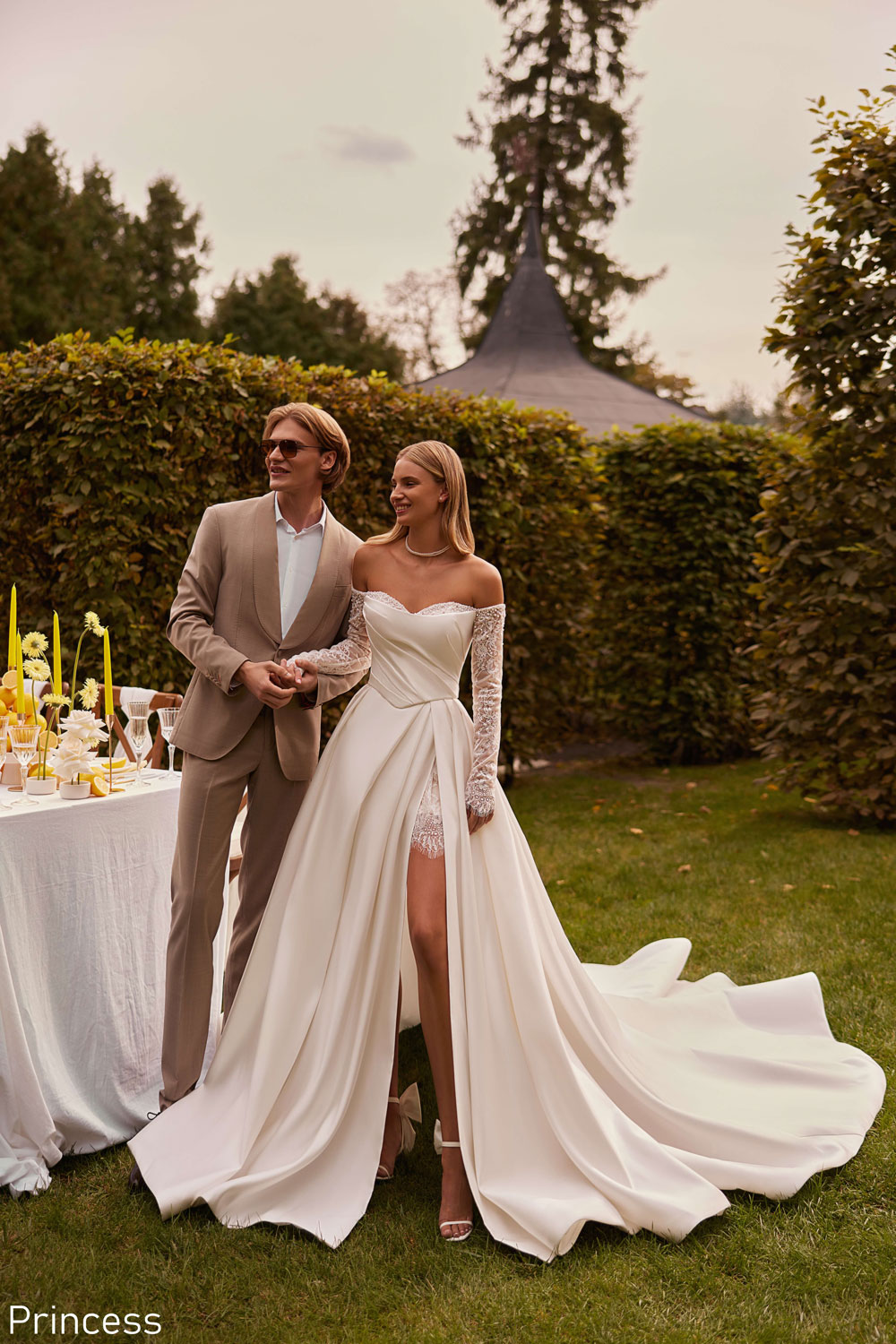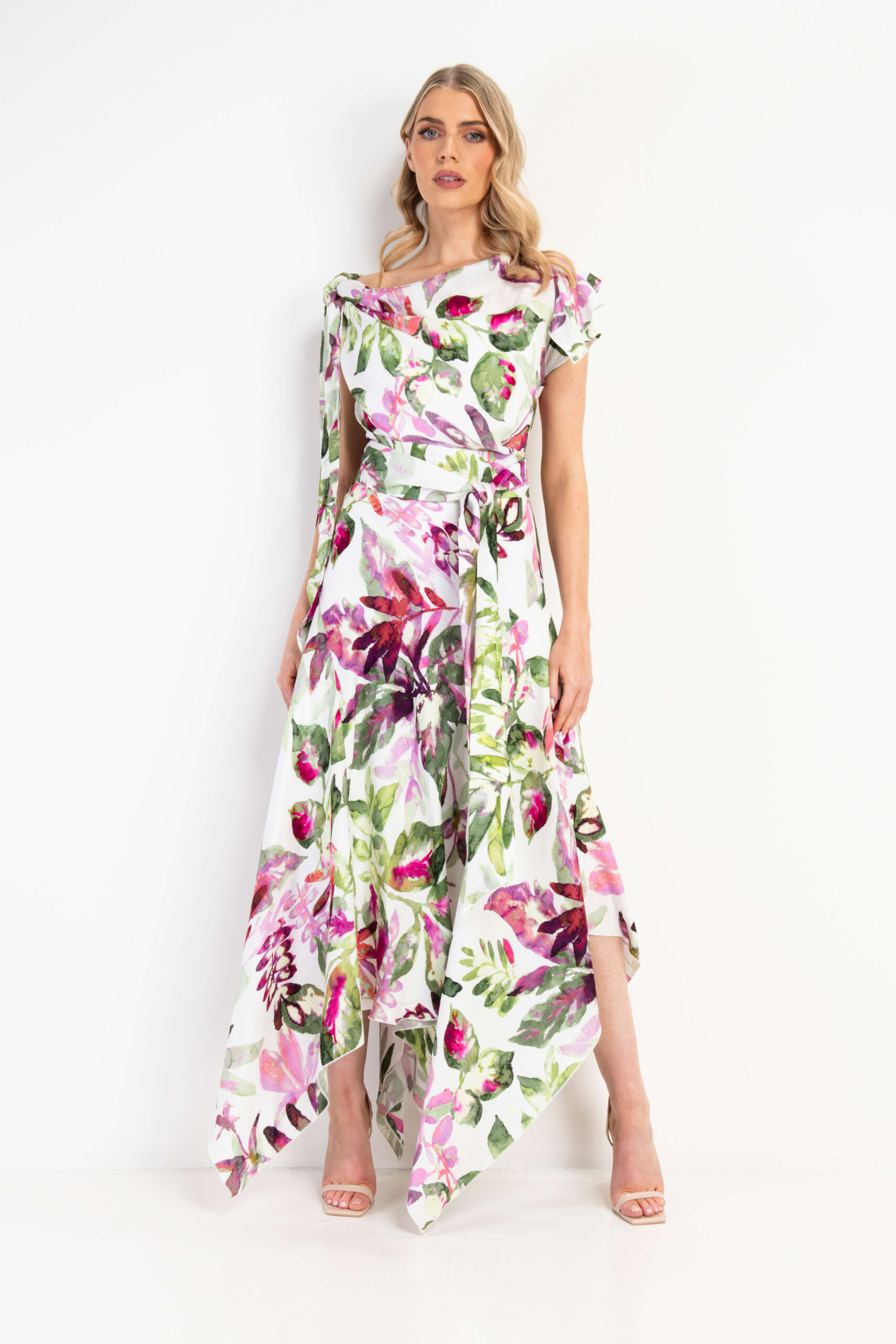
The Ultimate Guide to Budgeting for Your Wedding Dress
The Ultimate Guide to Budgeting for Your Wedding Dress
Planning a wedding is a monumental task, filled with decisions, details, and, of course, dreams. One of the most significant elements of your wedding day is the dress (let’s be honest here girls…that’s what everyone is waiting to see!). Of course, every bride wants to look fabulous, but it’s important to balance your dreams with financial reality.
Here’s a comprehensive guide to help you budget for your wedding dress, anticipate unexpected costs, and prioritise what truly matters.
1. Set a Realistic Budget
Before you start shopping, establish a clear budget for your wedding dress. It is so important to know what you are willing and able to spend on your dress before you start your search for ‘The One’. Trust us, there is nothing worse than a bride falling in love with a dress and then finding out that it’s way out of budget, it’s a nightmare! Our advice is to work out a budget and then speak to the shops you want to visit to make sure that their collections match what you are looking to spend. There is no point in wasting your time trying on dresses that are way above budget, it just causes confusion and can make choosing your dress stressful when it doesn’t need to be that way.
Follow our top tips to set a wedding dress budget:
• Determine Your Total Wedding Budget: You need to calculate the total amount that you are willing and able to spend on your day. You can either work with a figure that you know you have available and then divide that up to cover all aspects, or if you really don’t know where to start, then maybe add up all your supplier costs and start there to give yourself an idea of what your wedding is likely to cost.
• Allocate a Percentage to Your Dress: There is no set percentage of what you should spend on your dress…it really is up to you! As an average, we would say that brides typically spend around 10% of their total budget on the dress, but there are no rules, so you decide what works for you!
• Research Average Costs: Look at prices of dresses in your desired style and designer ranges to get a sense of what fits within your budget. It is definitely worth speaking to your favourite bridal stores and letting them know what your budget is. Trust us, it doesn’t need to be awkward but you need to be open so that the stores can advise what is best and ensure you are looking at all available options within your price bracket.

2. Consider All Dress-Related Expenses
When budgeting for your dress, remember that the dress itself isn’t the only cost. Include these additional expenses:
• Alterations: Wedding dresses require alterations to achieve the perfect fit. The adjustments required really do depend on each bride, but as a guide, alteration costs typically range from £200-£350.
• Undergarments and Accessories: Items like veils, shoes, lingerie, jewellery, and hair accessories add to the total cost. Some of these may be essential to your look, so you need to consider them when planning your budget.
• Cleaning and Preservation: If your dress requires cleaning and boxing after the wedding, then this needs to be considered too. It may be worth including a budget of around £150-£200 for this.
• Packing for Destination Weddings: Don’t forget that if you are getting married abroad, you will need to have your dress packed and boxed, and you also will need to ensure that you have booked a suitable luggage allowance to keep your dress with you on the flight. Airlines charge for everything nowadays, so this is worth checking when booking your flights!

3. Unexpected Costs to Watch For
As with all aspects of wedding planning, even with a detailed budget, unexpected costs can arise. Here are some potential surprises:
• Rush Fees: If you’re ordering a dress close to your wedding date, you might incur a rush order fee to ensure that your dress will be made and delivered in time. These depend on the designer but tend to start from £150+.
• Custom Modifications: Adding custom elements like extra beading, lace, or altering the design significantly can increase costs, so although most dresses can be customised, it is worth considering the cost before you get excited and start making lots of changes. The changes can be made, but they need to be worth the cost!
• Travel Expenses: If you’re purchasing your dress from a boutique far from home, consider travel costs for your fittings and seamstress appointments. Boring one to consider, I know, but these things all add up…

4. Prioritise What’s Important
With so many choices available nowadays and potential costs to consider, it’s essential to prioritise what matters most to you. Here’s how to stay focused:
• Define Your Budget: Have a clear idea of what you are willing to spend. If something is a little over budget but has everything you are looking for, then consider trying it, but don’t try on any dresses that are completely unrealistic and way over budget…you just never know if you’ll fall in love with it, and that can bring a whole host of problems!
• Decide on Must-Haves: Determine the non-negotiables for your look. If you are adamant about wearing a veil and have your eye on some designer shoes, then these are priorities, and you need to take these off the outfit budget first so that you know what you have to spend on your dress.
• Be Open to Alternatives: If you had your heart set on a designer but it’s out of budget, then maybe consider looking at other designers with a similar style that has a smaller price tag. If you find a store you love but don’t have the budget for their gowns, then maybe consider looking at their sample gowns instead.
• Allocate Budget for Sentimental Items: If a custom veil or heirloom accessory is more important to you than a designer gown, adjust your budget accordingly.

5. Smart Shopping Tips
To make the most of your budget, keep these tips in mind while shopping:
• Start Early: Begin shopping 9-12 months before your wedding to avoid rush fees and allow time for thoughtful decision-making. There really is nothing worse than feeling rushed when making such a big decision, so if you have time on your side, use it!
• Shop Sales: Keep an eye out for sample sales and discounts at your favourite stores.
• Limit Entourage: Bring only a few trusted people to your dress appointments to avoid overwhelming opinions and stay focused on your vision.
• Be Honest: Don’t be afraid to speak to your bridal advisors and be honest about your budget. That way, they can help you explore all the suitable styles that work for you. Remember, they are there to help and want to ensure that you not only find your dream dress but also that you enjoy purchasing it!
Budgeting for your wedding dress is a balance between dreams and practicality. By setting a realistic budget, accounting for all related costs, anticipating unexpected expenses, and prioritising what’s most important, you can find the perfect dress without breaking the bank.
Remember, the most beautiful brides are those who wear their dresses with confidence and joy, knowing they’ve made the right choice in every way!
Written with love by Ella – Head Bridal Stylist

Book your one-on-one appointment with one of our experienced stylists today and let us help you find the perfect look!
Our Recent Posts




